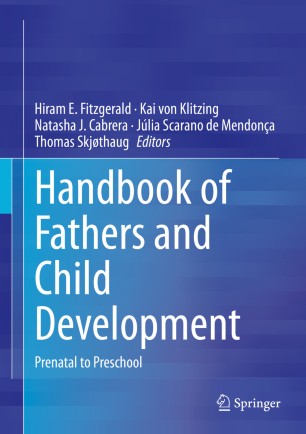

Most ebook files are in PDF format, so you can easily read them using various software such as Foxit Reader or directly on the Google Chrome browser.
Some ebook files are released by publishers in other formats such as .awz, .mobi, .epub, .fb2, etc. You may need to install specific software to read these formats on mobile/PC, such as Calibre.
Please read the tutorial at this link: https://ebookbell.com/faq
We offer FREE conversion to the popular formats you request; however, this may take some time. Therefore, right after payment, please email us, and we will try to provide the service as quickly as possible.
For some exceptional file formats or broken links (if any), please refrain from opening any disputes. Instead, email us first, and we will try to assist within a maximum of 6 hours.
EbookBell Team

4.8
14 reviewsThis handbook provides a comprehensive review of the impact of fathers on child development from prenatal years to age five. It examines the effects of the father-child relationship on the child’s neurobiological development; hormonal, emotional and behavioral regulatory systems; and on the systemic embodiment of experiences into the child’s mental models of self, others, and self-other relationships. The volume reflects two perspectives guiding research with fathers: Identifying positive and negative factors that influence early childhood development, specifying child outcomes, and emphasizing cultural diversity in father involvement; and examining multifaceted, specific approaches to guide father research.
Key topics addressed include:This handbook draws from converging perspectives about the role of fathers in very early child development, summarizes what is known, and, within each chapter, draws attention to the critical questions that need to be answered in coming decades.
The Handbook of Fathers and Child Development is a must-have resource for researchers, graduate students, and clinicians, therapists, and other professionals in infancy and early child development, social work, public health, developmental and clinical child psychology, pediatrics, family studies, neuroscience, juvenile justice, child and adolescent psychiatry, school and educational psychology, anthropology, sociology, and all interrelated disciplines.